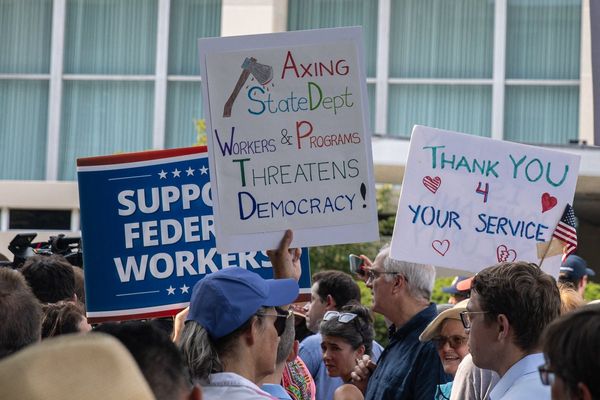Renewed violence in northern Kosovo reminds us that parts of the western Balkan region have a long way to go on the route to recovery from the wars of the 1990s that broke up the former Yugoslavia. Despite decades of western stabilisation efforts, the region remains mired in multiple inter-linked conflicts that are manipulated and exploited by local politicians.
À lire aussi : Kosovo: ethnic tensions have created a political 'volcano' that could erupt anytime
The latest flare-up was triggered when recently elected ethnic Albanian mayors tried to assume office in three ethnic Serb majority towns in the north of Kosovo. A heavy police presence sought to secure the mayors’ access to municipal buildings in Zvecan, Leposavic and Zubin Potok by trying to disperse crowds of local Serb protesters.
But this is only the latest in a set of worrying developments in relations between Albanians and Serbs in Kosovo and between Kosovo and Serbia. Last November, the mayors of four ethnic Serb majority towns resigned. They were joined by local councillors, ethnic Serb members of Kosovo’s parliament, the judiciary and Kosovo’s police.
This mass resignation was coordinated by the Serb List, Kosovo’s most influential ethnic Serb political party, and led to the further strengthening of existing parallel administrative structures, funded by Belgrade.
The mass resignation was a protest triggered by attempts to force ethnic Serb drivers to adopt official Kosovo number plates. But above all, ethnic Serbs were unhappy about the endless delays in establishing self-governance arrangements for their municipalities as agreed by the EU-mediated Belgrade-Pristina dialogue in 2013 and reconfirmed in 2015.
After considerable delays new local elections were finally held on April 23. Boycotted by ethnic Serbs, average turnout across the four municipalities was just under 3.5%.
The west’s response
With the democratic legitimacy of the newly elected mayors in significant doubt, the EU issued a strongly worded statement immediately after the elections. It noted that the elections “do not offer a long-term political solution” for the four municipalities.
Throughout the following four weeks, western diplomats sought to avert further escalation – but to little avail. They finally vented their frustration on May 26 in a joint statement by the so-called Quint (the US, France, Italy, Germany and the UK). The statement condemned “Kosovo’s decision to force access to municipal buildings in northern Kosovo despite our call for restraint”. It also demanded that “Kosovo’s authorities … immediately step back and de-escalate, and … closely coordinate with EULEX and KFOR [the EU’s civilian mission to support rule of law and Nato’s peacekeeping force in Kosovo].” It is hard to imagine a more unambiguous allocation of blame for the escalating violence.
In an indication of how serious the situation is considered to be, Nato has decided to deploy an additional 700 troops to Kosovo, beefing up KFOR’s current force of 3,700 soldiers.
Perhaps even more significantly, the US, traditionally Kosovo’s strongest western ally, has cancelled Kosovo’s further participation in the Defender Europe 23 joint military drills. And the US ambassador to Pristina, Jeff Hovenier, was unequivocal in his condemnation of the lack of responsiveness on the part of Kosovo’s prime minister, Albin Kurti, to de-escalate the crisis in the north. He left little doubt that the US was running out of patience with the Kosovo government and was considering further punitive measures.
Entrenched divisions
The deeper problem here is that this particular crisis is embedded in the long-running dispute over Kosovo’s status. Once an autonomous province within the Serbian republic of the former socialist federation of Yugoslavia, its status is far from resolved. The conflict between Serbs and Albanians goes back for decades and builds on selective memories of a supposedly centuries-old confrontation between different ethnic groups.
It reached a tipping point in the late 1990s, which necessitated the 1999 Nato intervention and eventually led to the unilateral declaration of independence by Kosovo in 2008. While recognised today by some 100 countries around the world, it remains opposed by Serbia, China and Russia. In addition, Kosovo is not recognised by five EU member states, four of which are Nato members.
For more than a decade, the EU mediated dialogue between Pristina and Belgrade has attempted to resolve this conflict, by nudging the parties towards concessions and compromises. Two key sticking points remain: Serbia giving up on blocking Kosovo’s membership in international organisations and Kosovo’s acceptance of local autonomy for ethnic Serbs in areas in which they form a majority of the population. A proposal by the EU at the end of February to resolve these two issues remains contested between the two sides.
The dead end that EU efforts appeared to have reached was thrown into further sharp relief when the Kosovo government failed to move forward on implementing local self-governance arrangements for ethnic Serbs. To make matters worse, it but also appeared to curtail what little existed by its ill-judged attempts to impose the newly elected mayors with their highly questionable democratic legitimacy.
This is not to argue that Serb shadow authorities in northern Kosovo are any more legitimate or stabilising. On the contrary. The current situation requires de-escalation by the Kosovo authorities, but the deeper underlying problems in relations between Pristina and Belgrade require a more comprehensive and inclusive solution that reflects the interests of Kosovo, Serbia and Kosovo Serbs.
As the EU’s High Representative for Foreign Affairs, Josep Borrell, poignantly noted on May 30: “There has been enough violence – there has been too much violence. We have too much violence in Europe already today – we cannot afford another conflict.”
But appeals to rationality are unlikely to impress the self-serving politicians across this part of the western Balkans. So it remains unclear whether the combined west can muster the leverage necessary to not merely contain the current violence, but to forge the path to a stable future for the people of Kosovo.
Stefan Wolff is a past recipient of grant funding from the Natural Environment Research Council of the UK, the United States Institute of Peace, the Economic and Social Research Council of the UK, the British Academy, the NATO Science for Peace Programme, the EU Framework Programmes 6 and 7 and Horizon 2020, as well as the EU's Jean Monnet Programme. He is a Senior Research Fellow at the Foreign Policy Centre in London and Co-Coordinator of the OSCE Network of Think Tanks and Academic Institutions.
This article was originally published on The Conversation. Read the original article.







